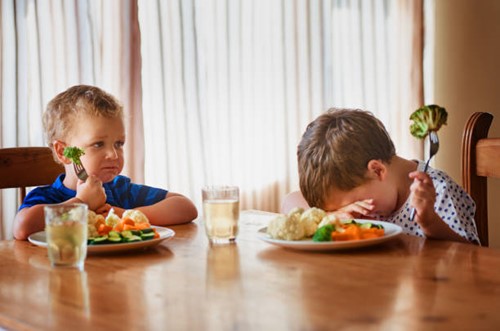- Wakefield SEND Local Offer
- Common Worries
- Feeding & Eating
Feeding & Eating
If your child has problems when they eat, drink or swallow your health visitor can give you advice about what may help or refer you to specialist services depending on the age of the child and what the difficulty may be.
For children still breast or bottle feeding, your health visitor can provide help and advice about how to make changes, if needed, as well as advice about weaning your child onto solid foods.
For children under the age of five, your GP or health visitor may suggest that Portage, a pre-school home visiting service, becomes involved. They can help children with early communication and pre-school learning skills. Visit the National Portage Association website to find out more.
They may also suggest a nursey or play school/group with trained people to help your child develop their social skills. You can find out about the different Stay, Play and Learn groups across the Wakefield district here .

If you have concerns over whether what your child will eat meets their needs, your health visitor or GP can refer you to a dietitian. Dietitians are health professionals that will assess, diagnose and treat dietary and nutritional problems your child may have. They will be able to give you advice on food to help you make sure your child gets the nutrients they need to grow. They also work with you and your child for any specialist dietary needs because of a medical condition, for example coeliac disease. For more information about healthy eating for you whole family in general visit Nutrition and Healthy Lifestyles – Wakefield Families Together
Reluctance or refusal to eat foods can be because a variety of reasons. They may be a selective or fussy eater or they could have a food phobia. A food phobia may begin if your child feels like eating a particular food will make them sick or because they worry they won’t be able to swallow it. It can also sometimes be because of wider anxiety issues. Other reasons affecting what your child may eat include:
- Not liking the feeling of cutlery in their mouth. For example, metal knives and forks are more likely to be disliked.
- Some children like to see the food presented on the plates in a certain order and don’t like their food being mashed together.
- Seeing too much food on a plate can be overwhelming. It can be better to only offer a little food at first and add more if wanted.
- Lots of noise or distractions (e.g. other family members or the television).
- Particular smells (or strong smells) of food.
To help identify what may be the reason for your child’s problems at mealtimes, you can be referred to a clinical psychologist. The psychologist will be able to give you support and advice about ways to encourage your child to eat and provide advice on other issues that may be causing anxiety about food and eating.
If your child has difficulty with swallowing because of a physical problem, you can be referred to a Speech and Language Therapist. The Speech and Language Therapy (SALT) Team also offer drop in sessions around the district, if you would like to speak to them in general before being referred. You can find details of dates, times and locations of the sessions they offer here.
Your child may also struggle to eat if they are having any issues with their teeth. They may find it hard to clean them, find visiting the dentist a very difficult experience or it may be related to their disability.
The Community Dental Service are trained to work with children, young people and adults with additional needs and you can find out more about them and accessing their service here. You can also find details about dentists near you and what services they can offer on the NHS Choices website here.
How To Brush Your Child's Teeth Poster
How To Brush Your Child's Teeth Leaflet
Oral Health Guide and Useful Resources

Food help
If you are struggling to buy food then contact your nearest Family Hub.
You can also visit Help with food - Wakefield Council
Is your child having trouble eating?
Seeing your disabled child struggling to eat or refusing food altogether can leave some parents feeling anxious and frustrated. There are many different reasons why a child might have trouble eating — and lots of advice on how to deal with their situation. Get the support and information you need in our website or by reading our Feeding & Eating parent guide here

